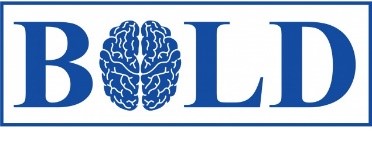Resources
- Memory Impairment and Neurodegenerative Dementia Center (MIND Center)
-
Care, Support and Resources
-
Resources
- Resources
- Brain Health Awareness - Be Brain Mighty
- Mind Minute Newsletter
- AARP Global Council on Brain Health Report - PDF
- Alzheimer's Disease Education and Referral Center - External Site
- Alzheimer's Association Mississippi Chapter - External Site
- Atherosclerosis Risk in Communities (ARIC) Study - External Site
- MS State Agency Services for Older Adults - PDF
- Navigating Alzheimer's and Related Dementias: A Roadmap for Families - PDF
- State Strategic Plan for Alzheimer's Disease and Related Dementias - PDF
- State Strategic Plan for Alzheimer's Disease and Related Dementias Progress Report - PDF
- Alzheimer's Facts
-
Resources
- Education
- Research
- Ways to Help
- Contact Us
Be Brain Mighty

Change Your MIND: Be Brain Mighty
Our brain changes with age, and our memory and thinking function changes along with it. However, you can protect your brain health at any age. Keeping your brain healthy is essential for living a long and full life. The following eight tips are ways to keep your brain healthy and functioning well. Change your mind, Mississippi, and be brain mighty!
The Mighty 8
Here are 8 simple ways to protect your brain and be brain mighty!
Protect your head.
Your head contains one of your most important organs: Your BRAIN!
Protect your head by always wearing your helmet, your seatbelt and using safety features like handrails to prevent potential brain injuries.
Get good sleep.
Catching z's is crucial for brain health. Aim for 7 hours or more of uninterrupted each night to keep your brain mighty.
Eat healthy.
Your brain needs healthy foods to stay mighty. Make sure your daily eating plan includes whole foods like fruits and vegetables, lean protein, whole grains, nuts, and seeds.
Get moving.
Your body needs to move daily to keep your brain mighty. So find ways to walk more and sit less! And remember kids and teens need at least 60 minutes of daily activity.
Stay heart healthy.
What's good for your heart is good for your brain, so be sure to manage your blood pressure and cholesterol to stay brain mighty.
Control blood sugar.
High levels of blood sugar can damage your heart, kidneys, eyes and nerves in your brain! Be sure to monitor your blood sugar to keep your brain mighty.
Stay connected.
Spending time with others isn't just fun; it's good for your brain and helps protect it from future brain diseases like Alzheimer's.
Keep your brain active.
Just like your body, your brain needs to stay active too! Try learning new skills, reading, or putting together a puzzle to keep your brain mighty!
Brain Health Resources
CDC National Healthy Brain InitiativeHealthy Brain Initiative | CDC
CDC Alzheimer's Disease Program
Alzheimer's Disease Program | CDC
Centers for Disease Control and Prevention: Dementia Risk Reduction
Dementia Risk Reduction | CDC
American Heart Association: Life's Essential 8™
Life's Essential 8 | American Heart Association
Global Council on Brain Health: A Collaborative from AARP
The Global Council on Brain Health (GCBH) (aarp.org)
National Association of Chronic Disease Directors Healthy Aging Programs
https://chronicdisease.org/healthy-aging/
Alzheimer's Association
https://www.alz.org

This publication was supported by the Centers for Disease Control and Prevention of the U.S. Department of Health and Human Services (HHS) as part of a financial assistance award totaling $349,999 with 100 percent funded by CDC/HHS. The contents are those of the author(s) and do not necessarily represent the official views of, nor an endorsement, by CDC/HHS, or the U.S. Government.


